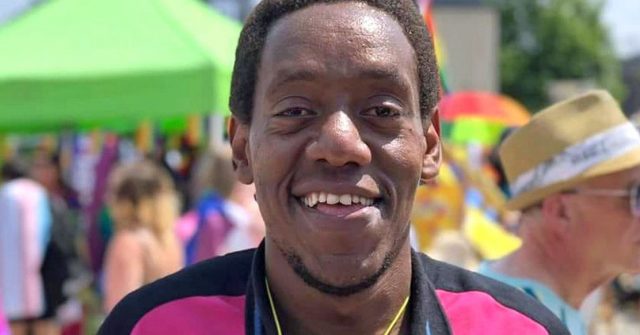
Ken Macharia — a gay 39-year-old Kenyan-born rugby player who has been living in the U.K. since 2009 — has been temporarily allowed to stay there. The news comes six months after the British government threatened to deport him to his home country, where he could have faced 14 years imprisonment for being gay.
In November 2018, the U.K. Home Office — the branch of the British government responsible for immigration and domestic security — detained Macharia and took him to a detention center near Heathrow Airport, notifying him that he could be deported at any moment. The U.K. Home Officer reportedly told Macharia that they didn’t accept that the “threat of prosecution [for being gay] amounted to a real risk of persecution.”
In 2015, Macharia joined Bristol Bisons RFC, a gay and inclusive rugby team. He served as their match photographer and underwent training to become their first aid medic.
Macharia also joined Bristol Refugee Rights’ Pride without Borders and KIKI Bristol, a social group for queer people of color. Together, these groups and his rugby team helped garner international attention around his deportation proceeding, and began a Change.org petition which has since gained nearly 105,000 signatures.
The Home Office released Macharia from detention on November 20, 2018, but barely a week later, it reinstated his deportation notice and sought to detain him without bail, an effort which ultimately failed.
Despite his release and the Home Office’s recent cancellation of his deportation notice, Macharia remains in a legal limbo, at risk of being deported back to Kenya at any time.
He and his teammates started a successful crowdfunding campaign to help pay for legal costs associated with his case and consulting experts on LGBTQ persecution and deportation.
While his case is noteworthy, it’s hardly unique. Macharia is one of three gay regional athletes that we know of currently facing deportation back to anti-gay countries.
Along with 34 other African countries, Kenya currently criminalizes same-sex sexual encounters. These laws, largely the legacy of American evangelicals and British-era colonial rule, criminalize “carnal knowledge” and “gross indecency” between two men, something that can include mere kissing or holding hands.
CNN found that that the the Kenyan government prosecuted 595 cases of homosexuality between 2010 and 2014.
Hornet reports:
The mere existence of anti-gay laws leaves Kenya’s LGBTQ citizens open to various abuses including harassment, assault, eviction, unlawful termination and so-called “corrective rape.” LGBTQ victims are encouraged not to go to police, lest they get thrown in jail themselves just for being gay. Anti-LGBTQ assailants often go unpunished.
A case currently in front of Kenya’s High Court could potentially repeal its anti-gay laws. In the run-up to the court’s decision, a new campaign titled “Voices of Kenya” highlights audio testimonies from 10 Kenyans discussing how the country’s anti-gay law personally affect them.
The Kenyan High Court is expected to give its ruling on Friday, May 24.
Despite Kenya’s anti-gay laws, gay Kenyan runner and 2018 Gay Games competitor Kelvin Washiko told Outsports:
“The gay environment [in Kenya] is much more accepting and tolerant. But at the same time you find people who are very ignorant, people who don’t understand the law, people who use the law they don’t understand to oppress you in terms of maybe the police will arrest you, maybe a landlord wouldn’t rent you a house because he doesn’t accept gay people. There are evictions. Some people will deny you services because you’re gay.”
While LGBTQ Kenyans do hold public parties and even film viewings, the government exercises anti-LGBTQ policies in ways beyond just criminalizing sex. Two LGBTQ-themed Kenyan movies — Rafiki and Stories Of Our Lives — were banned outright in Kenya in recent years.








